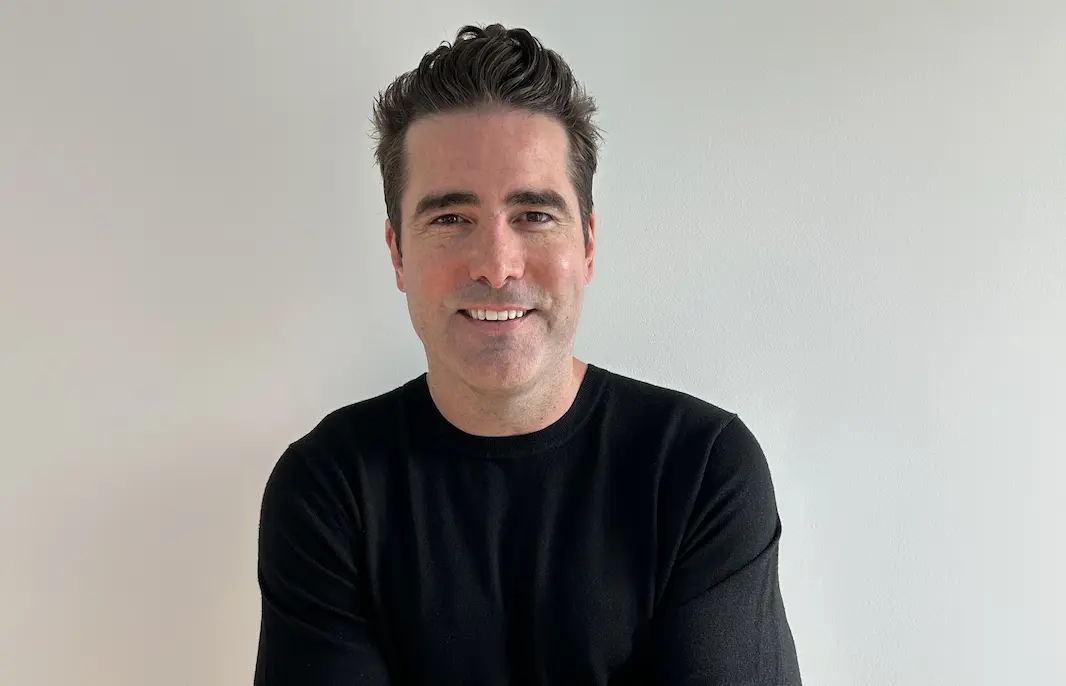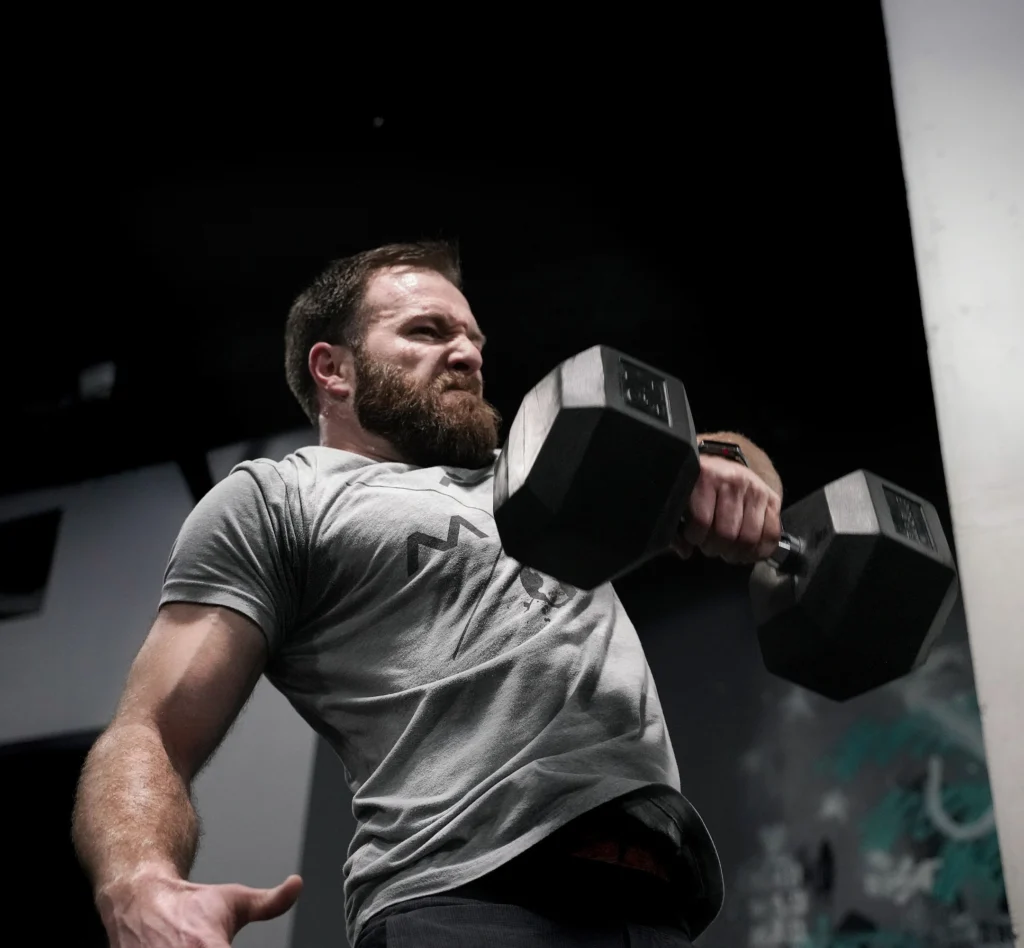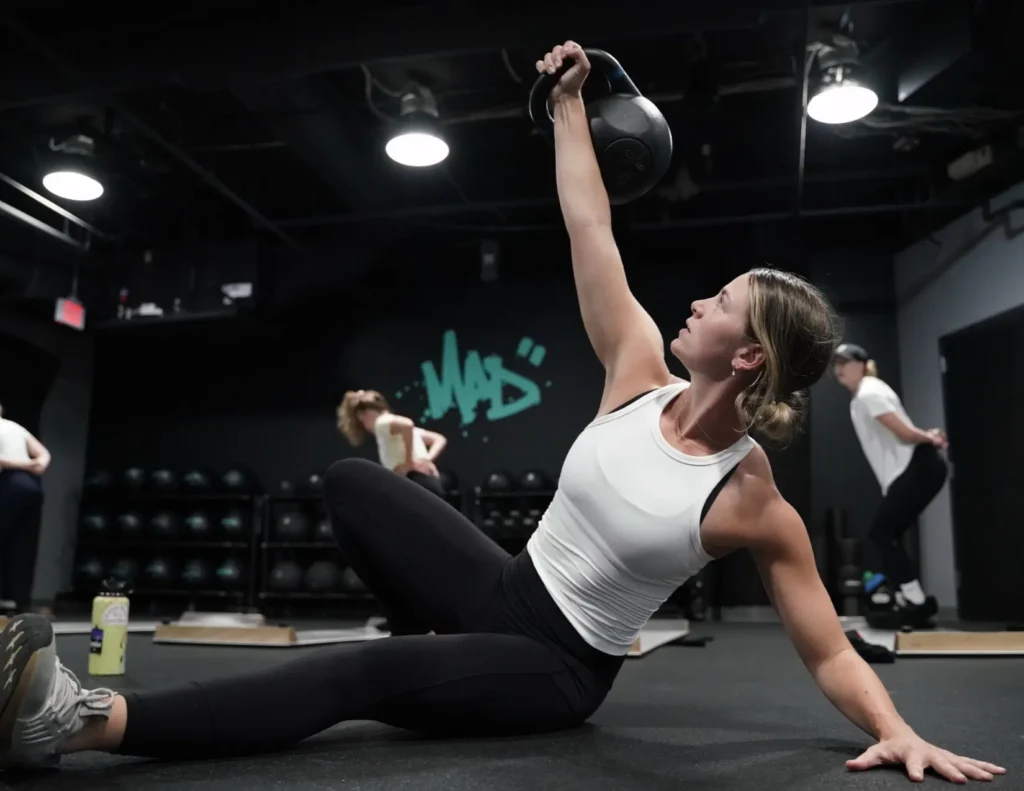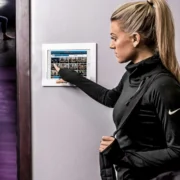CEO Corner: MADabolic Co-Founder Brandon Cullen on Steering Away from Inclusivity

The MADabolic co-founder knows his brand’s approach to fitness is different and knows there’s a demand for it.
Brandon Cullen knew he and co-founder Kirk Dewaele wanted to diverge from the norm when launching MADabolic, the strength-driven interval training franchise, back in 2012. Now, after over a decade of operation, the brand is thriving in that exact nature, being its unapologetic self and helping anyone who’s willing to climb aboard reach their fitness goals.
MADabolic offers a challenging-yet-accessible environment unique to each client. Classes involve a strength-led approach, and workouts are crafted entirely around work-to-rest ratios designed to foster safe progression and continuous improvement. Qualified trainers are there to lead the way, ensuring personalized attention and safety.
It’s a rather specific formula, but one that has caught on nonetheless, with MADabolic now boasting 35 locations, 8-10 to open before the end of 2024, and with 60+ in development. The brand has grown its offerings in unison with its geographic outreach as well. MADabolic inked a deal with Macrostax to add personalized nutrition plans earlier this summer and before that partnered with Aqua Training Bag — now owned by Promountings.
Cullen spoke with Athletech News on this growth, his brand’s unique approach to fitness and its latest marketing initiatives.
The following conversation has been lightly edited for clarity and length
Athletech News: Can you tell us a bit about your background and how you got into this position with MADabolic?
Brandon Cullen: My co-founder, Kirk Dewaele, and I have always been inspired by outliers, both personally and professionally. Our fitness journey began as athletes, which naturally grew into a passion for redefining strength and conditioning within a group model. When we set out to create what is now MADabolic, it was clear that embracing the ethos of outliers was a path worth pursuing.
Athletech News: What makes MADabolic different from other boutique fitness operations, specifically with its approach to fitness and adding/satisfying members?
Brandon Cullen: As mentioned earlier, MADabolic isn’t about conforming to traditional molds. We’ve deliberately moved away from the overused group-fitness playbook, prioritizing structure and consistency over variety. Our focus is on sustainable strength training and personalized attention to detail. This approach tends to attract members who are serious about their fitness journey and expect more than just a generic workout. Our culture is designed to create an environment where every member trains with purpose.

Athletech News: What challenges have you faced while scaling, and how have you addressed them? How do current fitness market trends influence your growth strategy? Are there specific trends or consumer behaviors that you are leveraging to drive expansion?
Brandon Cullen: Scaling a brand like MADabolic comes with unique challenges, particularly when your model isn’t exactly designed for broad appeal. We’ve had to be very strategic about both the pace and location of our expansion, ensuring that every franchisee can uphold the level of structure and accountability that defines us. This process isn’t an exact science; sometimes, it requires taking strategic risks and betting on people rather than just markets. Overall, our growth strategy is focused on maintaining the integrity of our brand while tapping into areas with a clear appetite for what we offer.
Athletech News: MADabolic’s approach to fitness isn’t very commonplace in the industry. Why has it been important to get the word out about that with efforts such as your recent “Welcome” video?
Brandon Cullen: Our tone is undeniably different, and we take pride in that. The “Welcome” video was created to clearly communicate who we are and what we stand for—no frills, no fluff, just real, results-driven fitness. It’s important for us to get the word out because we’re not here to blend in; we’re here to stand out. We know our method works, but it’s essential that the right people hear about it. The video was about making a statement and setting clear expectations for new members when they walk through our doors.
Athletech News: Why do you think an emphasis on inclusivity has been such a selling point for so many other gyms? What led to your brand’s decision to steer things in a different direction?
Brandon Cullen: Inclusivity is a powerful narrative, and it resonates with many people—there’s no denying that. However, we don’t position ourselves as strictly inclusive or exclusive and we don’t cater to a specific body type or athletic background. Our environment can work for anyone, but it’s not for everyone. While some might see this as exclusivity, we prefer to view it as fostering a community of like-minded individuals who expect a little more from life. In short, we’re here to train you, not entertain you.

Athletech News: Your approach aims to deliver empowerment and transformation. How does this goal shape your marketing messages and brand positioning?
Brandon Cullen: Empowerment, both physical and mental, is at the core of everything we do. Our marketing is centered around promoting excellence and commitment. We position ourselves as the place where everyday go-getters can challenge themselves and sweat alongside people who are equally committed to their growth and goals.
Athletech News: What strategies are in place to support MADabolic’s growth? Are you focusing on expanding into new geographic regions, increasing the number of locations, or both?
Brandon Cullen: Franchise sales in fitness have slowed considerably over the last 6-12 months. This isn’t specific to MADabolic—it has impacted the entire fitness industry. Several factors contribute to this slowdown: major players in the fitness space have experienced public setbacks, borrowing costs are high, and the election year has made investors more cautious. Additionally, we’ve seen a shift of investment dollars from fitness to health span and recovery sectors. While I believe these startups may have a short shelf-life, they’re currently gaining attention.
All that said, boutique fitness isn’t going anywhere, and we’re confident in our trajectory. I anticipate a consolidation of concepts and portfolios in the next 12-24 months, where the strong will likely get stronger. But make no mistake, we’re focused on growth and are strategic about it. It’s not just about opening more locations; it’s about finding the right franchise partners who will enable our brand to thrive.
Despite the slowdown in new franchise sales, our openings remain strong. We’re in the process of launching 8-10 new units in the next four months, with additional commitments lined up for 2025. The good news is that new units and markets often drive new franchise sales. With the concept of strength training trending and our robust unit-level economics, we are very optimistic about the next 12-18 months.



